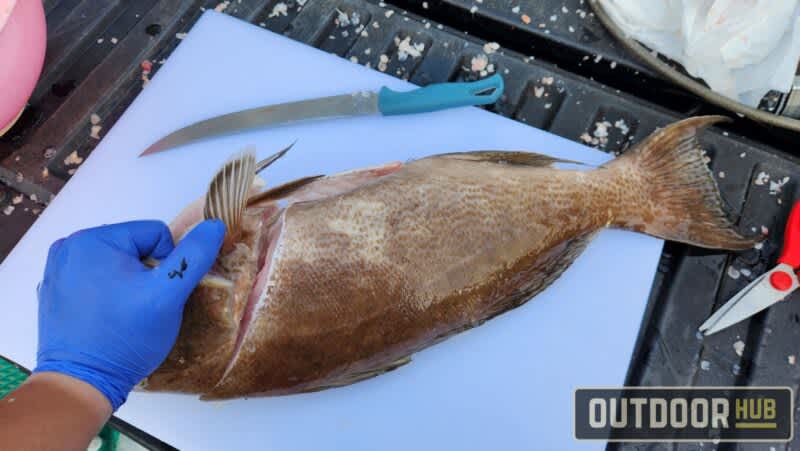
An often overlooked cut of the grouper is the throat; many people who don’t know end up tossing it out with the head and frame of the grouper. But for those who know what’s up, this is a premium cut that should never be tossed out. Grouper throats are loaded with tender and moist meat and for me one of my favorite cuts of grouper. I hope yall kept your grouper heads like I told you to in the last Breaking it Down, I’m going to show you how to reduce waste by removing a grouper throat and prepping it for the kitchen. As long as the grouper you kept is legal sized the grouper throats you pull off of it will be worth the effort, even a just legal scamp produces a throat that’s like a chicken wing. So no excuses about it not being enough meat to be worth your while.
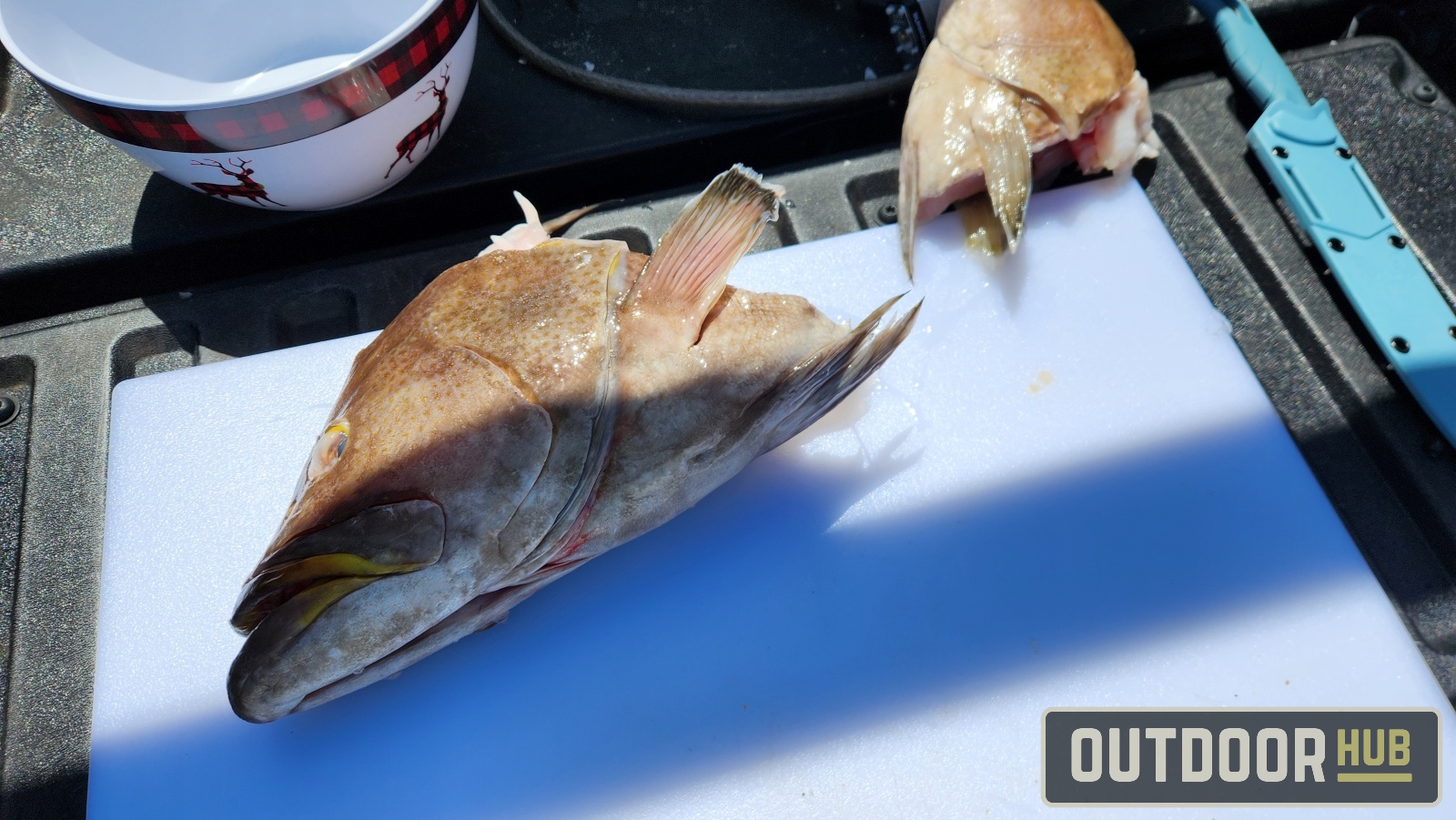

Breaking it Down on OutdoorHub
The first thing to do with your grouper head or grouper frame, I’m working with just the heads of all our catch after they had all been filleted already, is flip them over and open up the gill plates. Take your knife and cut off the front of the throat from the lower jar of the grouper with a quick flick of the knife on both sides. You can also use heavy kitchen shears here to cut through the connective tissue at the front of the grouper throats. Then take your knife going back towards the collar/throat and trace along the inside of the collarbone of the grouper. You are cutting off all the connective tissue connecting the grouper’s throat from the rest of the grouper’s head.
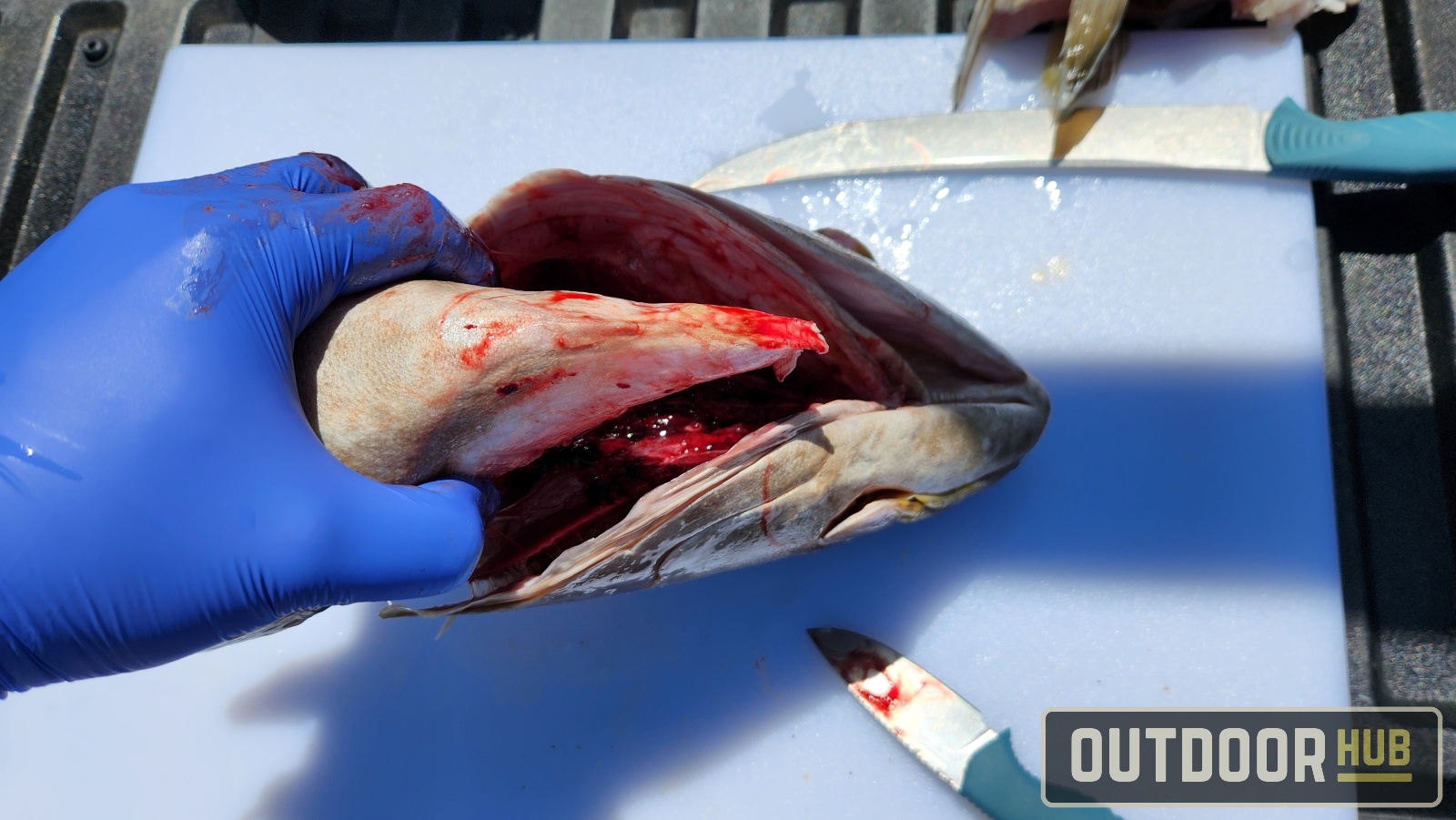

After you cut away the gills and connective tissue you have two options of removing the grouper throats from the heads. If you have removed the grouper head from the frame you can brute force it like shown below, by twisting the grouper throat backwards and over the head of the grouper. This will pop the collarbone off the bone that extends down from the top of the gill plate. Most of the time this will just pull the grouper throats off the head, if they are still connected just cut whatever skin and meat that is still holding on. If you haven’t taken the heads off the frame, you can just follow the collarbone near that gill place bone and work your knife through, this method takes a little more finesse.
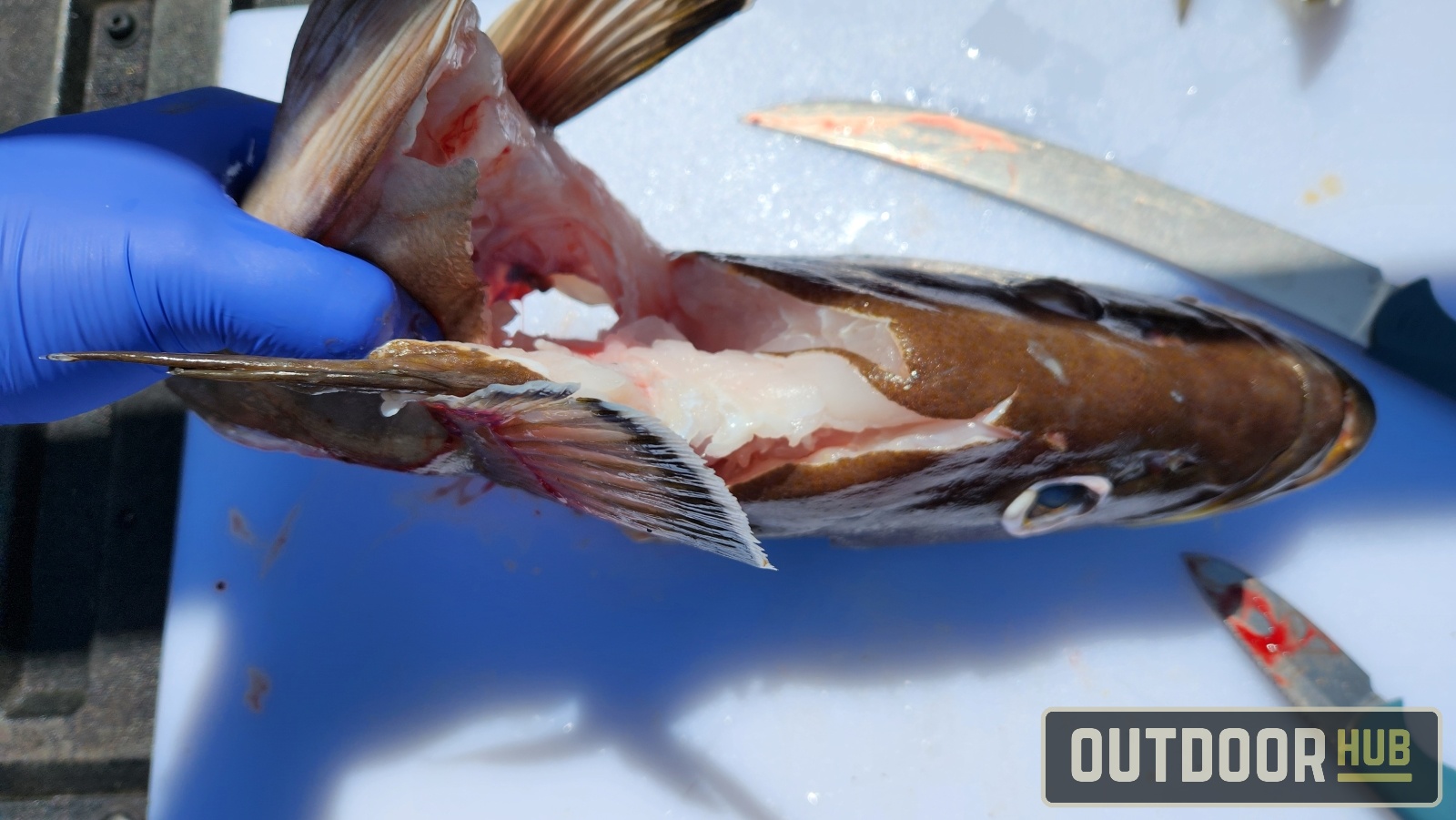

Now you have your grouper throats taken off the grouper heads or frames, it is now time to dress them for cooking. The first step is to split the grouper throats so they lay flat. Take your knife and find the pelvic bone that is at the bottom of the throat. Cut slightly into the throat right in the middle, splitting the pelvic bone. Press down on both sides of the grouper throat to finish splitting the bones and have it lay flat. If you are planning on grilling the grouper throats I would say stop right here. I prefer to cook them skin-on when grilled or broiled, they hold up better to the dry heat. The grouper throats also won’t stick as much to the grill grate with the skin on.
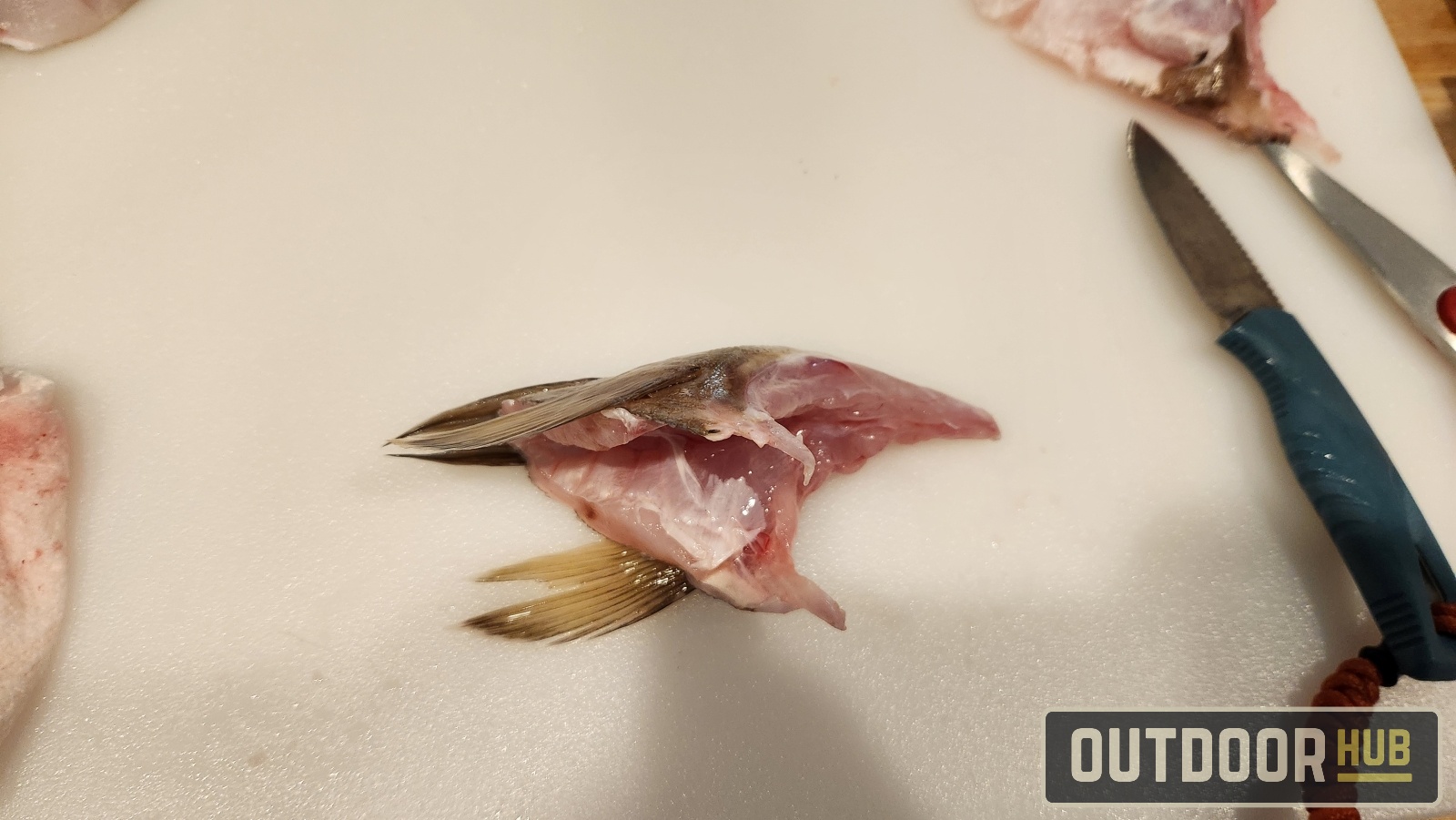

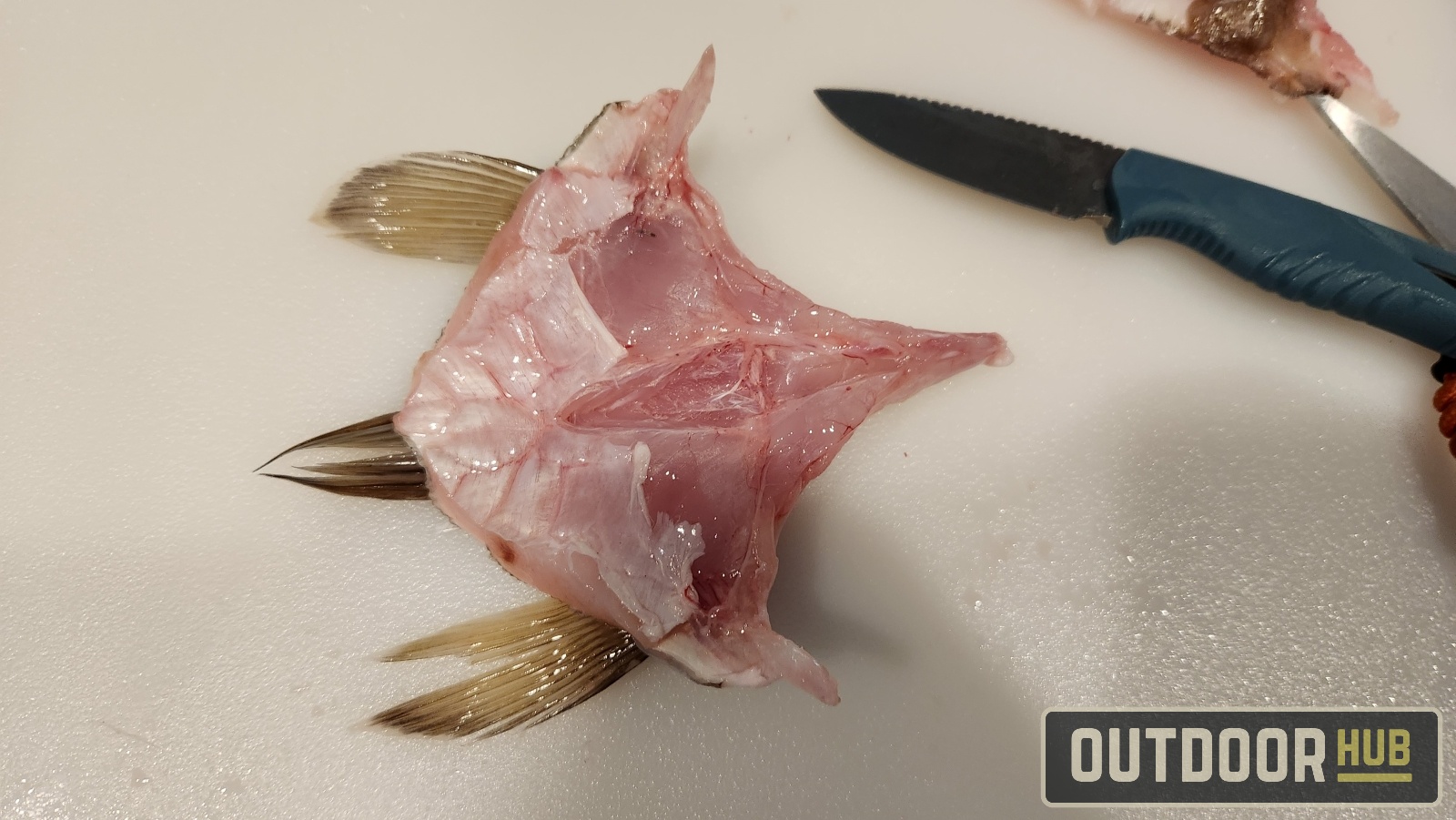

If you are frying the grouper throats we need to take another step. We need to skin the grouper throats. Take your knife and make a small shallow cut right at the front of the grouper throat. You are cutting just under the skin.
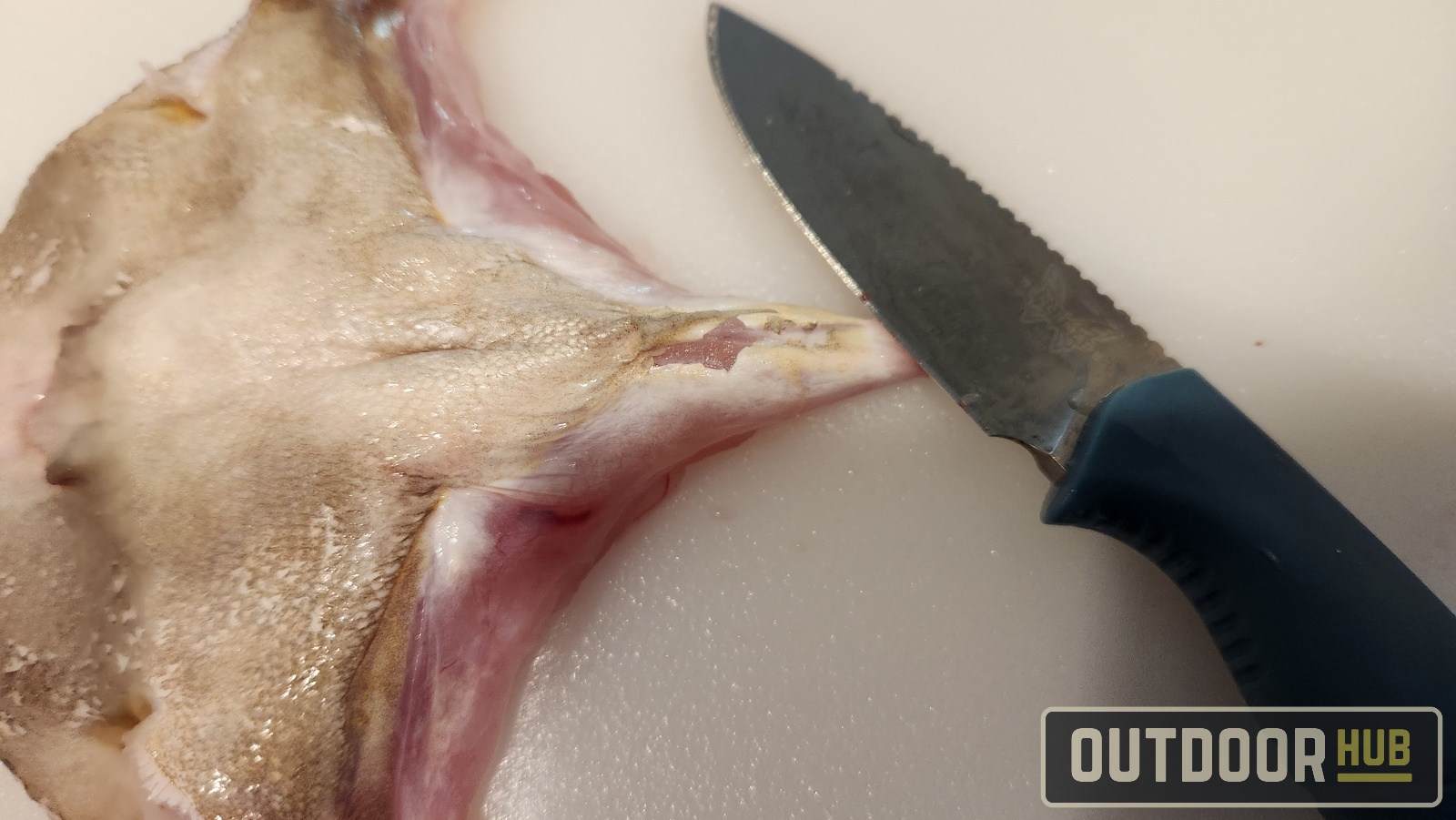

Then you are going to get either some paper towels or skinning pliers and start pulling the skin off the grouper throat. The skin is pretty well attached on smaller collars so you will need to use a bit of elbow grease to pull it off the grouper throats. But you don’t want to go too hard, you can tear the meat if you arent careful. For larger throats, you can often just work your fingers in between the skin and meat, and just split the connective tissue. You want to remove all the skin if you are frying your collars. The breading doesn’t stick well to it and it’s tough when cooked. Also, you can choose to leave the fins on or clip them off the grouper throats. The fins will actually fry up crispy and be like a fish cracker, but they can make skinning the throats a little more work.
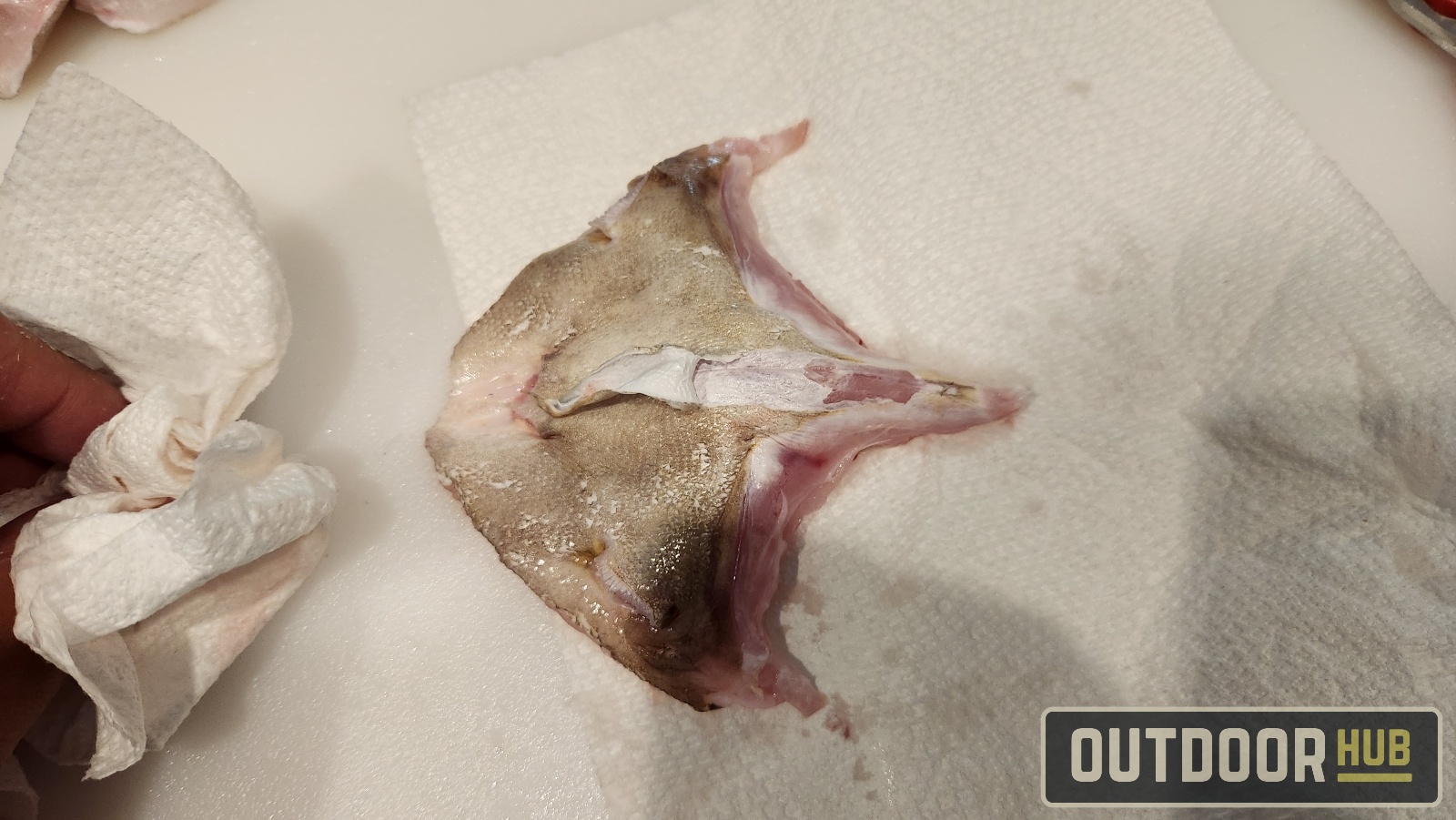

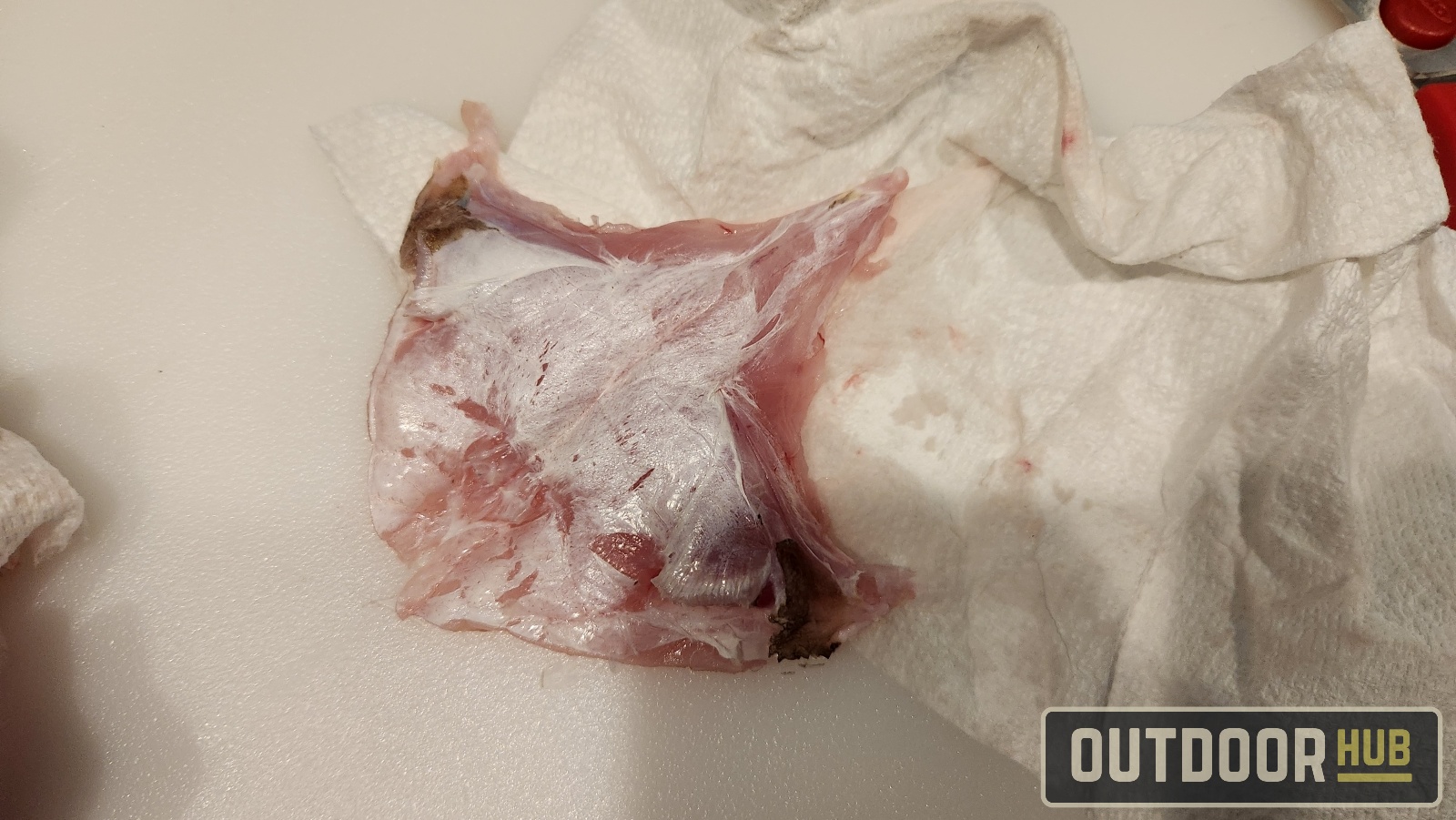

I really hope y’all start keeping the grouper throats after reading this today, they are honestly one of the tastiest cuts of the grouper. When deep fried, its like the chicken wings of the sea, but even better.

